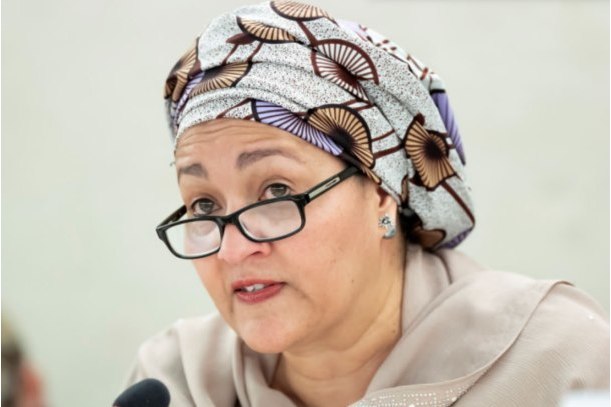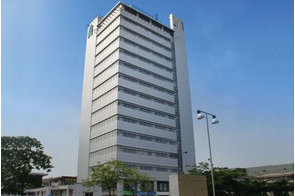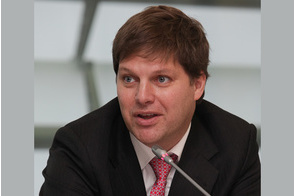Access Bank joins global efforts to mobilise financing for sustainable development

Summary
Access Bank was among the banks that developed the UN Principles for Responsible Banking.
United Nations Environment Programme Finance Initiative (UNEP FI) hosted its 16th Global Roundtable (GRT) on October 13-14, 2020, in collaboration with Responsible Investor, a UK-based publication. The biennial GRT is a major global agenda-setting event on sustainable finance. As a member of UNEP FI, Access Bank Plc joined global leaders at the event, which held virtually for the first time ever, to discuss approaches to accelerate financing for the Sustainable Development Goals (SDGs).
As a partnership between UNEP and the global financial sector, UNEP FI is at the forefront of mobilising private sector financing from banking, insurance and investment communities to foster sustainable development. The latest GTR held under the theme, “Financing a Resilient Future.” The event brought together over 3,000 participants, and a stellar line-up of speakers that included Amina Mohammed, UN Deputy Secretary General; Kristalina Georgieva, Managing Director of the International Monetary Fund (IMF); and Mark Carney, UN Special Envoy on Climate Action and Finance.
In her keynote address, Mohammed reminded participants of the enormous potential of sustainable finance to transform markets, businesses, societies and environment. She urged financial markets to shift finance away from destructive activities and towards nature-based solutions.
The GRT 2020 held one month after the 75th session of the UN General Assembly (UNGA 75), which saw a groundswell of political commitment on curbing biodiversity loss. According to the UN, biodiversity is the living fabric of our planet; it is at the core of human life and prosperity. The World Economic Forum says $44 trillion of economic value generated – more than half the world’s GDP – is dependent on nature.
In her presentation, the IMF Managing Director outlined the needs for mobilising financial resources for the much-needed green transformation and build low-carbon, climate-resilient economies. Carney, a former Governor of the Bank of England, emphasised the importance of financial institutions in managing the climate risk and tackling climate change across all sectors of the economy. He commended UNEP FI on its major initiatives, including the Principles for Responsible Banking (PRBs).
Launched in 2019, Access Bank was among the banks that developed the PRBs, which are a unique framework for ensuring that signatory banks’ strategy and practice align with the SDGs and the Paris Climate Agreement. Omobolanle Victor-Laniyan, Access Bank’s Head of Sustainability, said, “Financial institutions in Africa have been supportive of the principles.” Her assertion was based on the fact that five of the banks that developed the PRBs are indigenous African banks, with each of the banks playing key roles during the process.
Currently, more than 185 banks are signatories to the PRBs. Collectively, the banks represent more than a third of the global banking industry, according to UNEP FI.
The roundtable explored emerging approaches to financing the SDGs. In this regard, the event looked at the role of the financial sector in building societal resilience. It also examined approaches to bridging inequalities, building stronger communities, and addressing systemic risk and injustice in the transition to a low-carbon economic future in a post-Covid-19 world.
Eric Usher, Head of UNEP FI, noted that while communities have faced a challenging year with the COVID-19 pandemic, the financial sector, working closely with governments, has stepped up and kept global economies functioning. While echoing Usher’s remark, the Head of Sustainability at Access Bank highlighted the bank’s role in supporting Nigeria’s COVID-19 response.
“Without a doubt, COVID-19 has given the world a brutal reminder of the need to strengthen the resilience of our society as a whole,” Victor-Laniyan said. “Access Bank has contributed in uniting private sector stakeholders to improve the Nigerian government’s response to the virus while also providing much-needed finance for health healthcare providers and manufacturers under the auspices of the Central Bank of Nigeria.”
Following the outbreak of the virus in Nigeria, Access Bank partnered with Aliko Dangote Foundation (ADF) and other participants to launch the Private Sector Coalition Against COVID-19 (CACOVID). The coalition raised over N30 billion as at the end of June 2020. Apart from providing relief materials, including food items to state governments, the coalition also built facilities to strengthen the country’s capacity for diagnostic testing and treatment for the virus.
Related
-
Africa lacks investment to achieve SDGs – Standard Chartered study
Survey finds only 3 per cent of the over $50 trillion global AUM is invested in Africa.
-
AIM 2022 to boost investments in sustainability, innovation
The theme of the global investment event is “Investments in Sustainable Innovation for a Thriving Future.”
-
Lombard Odier, Oxford University and sustainable finance: The remarkable transformation of a ...
We need to “rethink everything” and get from where we are – which is WILD: Wasteful, Idle, Lopsided and ...










